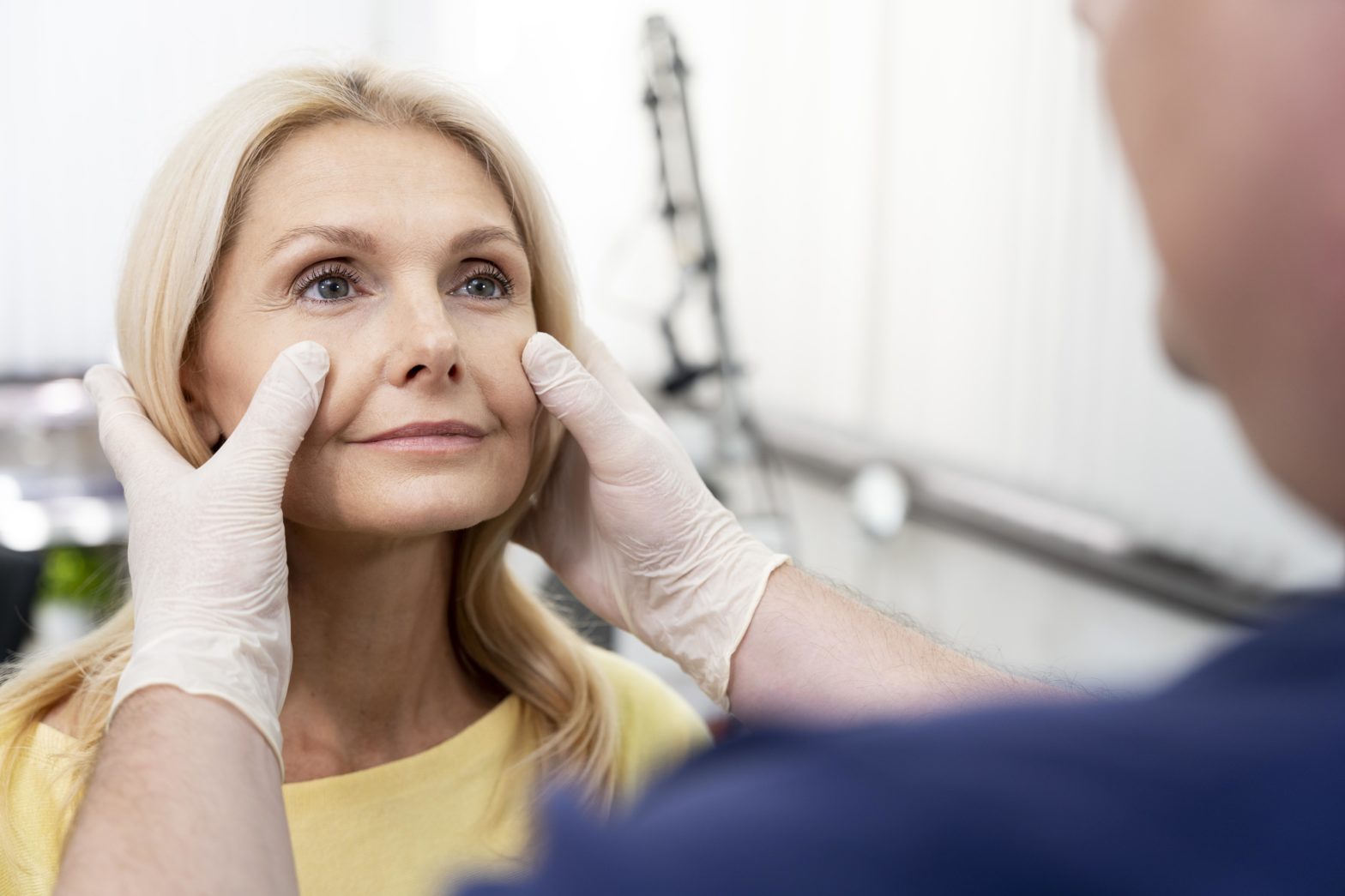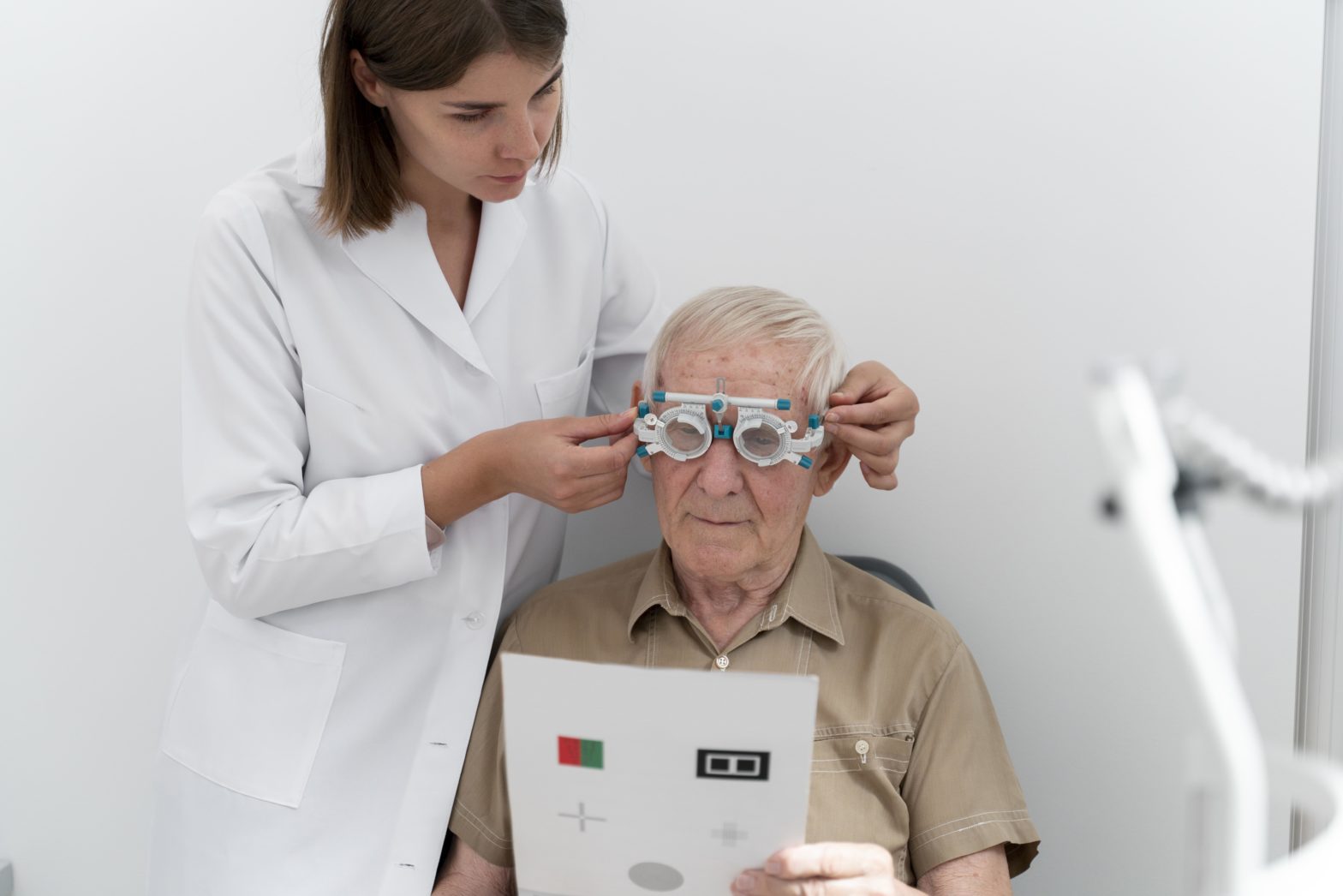In the hustle of modern life, our eyes often bear the brunt of our daily activities. From hours spent in front of screens to exposure to environmental elements, it’s no wonder that many of us experience the discomfort of dry eyes at some point. But what exactly is dry eye syndrome, and why does it leave us longing for relief?
Dry eyes are caused by insufficient tear production or poor tear quality, can be extremely uncomfortable and even disruptive to daily life. Whether caused by environmental causes, lifestyle choices, or underlying health issues, finding relief for dry eyes is critical for sustaining ocular health and general well-being. In this comprehensive guide, we’ll look at the treatments and preventive measures to help you say goodbye to dry eyes and welcome back comfort and clarity to your vision.
What is Dry Eye?
Dry eye, also known as dry eye syndrome or keratoconjunctivitis sicca, is a common condition determined by a lack of water moisture or lubrication on the eye’s surface. Tears help to keep the eyes healthy and comfortable by providing lubrication, lowering the risk of infection, and washing away foreign particles. However, for people who have dry eyes, the amount of tears is inadequate to keep the eyes suitably moist.
Tear production and distribution require two basic components:
- The lacrimal glands generate tears with a watery component known as the aqueous layer. It lubricates the eye’s surface and helps to remove debris and irritants.
- The meibomian glands in the eyelids create a lipid (oil) layer, which forms a thin film over the aqueous layer to prevent tears from evaporating too quickly. It also helps to keep tears stable and prevent spillage.
Dry eye syndrome treatment is often aimed at easing symptoms while also enhancing tear production and quality. This may include the use of prescription eye drops, artificial tears, warm compresses, lifestyle changes, and, in certain cases, procedures to correct underlying eyelid problems. Individuals with persistent or severe dry eye symptoms should contact an eye care specialist to receive an accurate diagnosis and customised treatment plan.
While occasional dryness may come from environmental causes such as wind, smoke, or dry air, chronic dry eye syndrome can be caused by a variety of reasons, including:
- Ageing: Tear production decreases with age, resulting in drier eyes.
- Environmental factors: Smoke, wind, dry regions, and air conditioning can all cause dry eyes.
- Screen time: Prolonged use of electronic devices can cause reduced blink rates, resulting in poor tear dispersion and dryness.
- Medical conditions: Blepharitis, Sjögren’s disease, rheumatoid arthritis, and diabetes can all cause dry eyes.
- Medications: Some drugs, such as antihistamines, decongestants, and antidepressants, might reduce tear production.
Common Symptoms of Dry Eye
Identifying the symptoms of dry eyes is critical for early diagnosis and treatment. This may include:
- Stinging or scorching sensation in your eyes
- Itching or Redness
- Blurred vision
- sensitivity to light.
- Stringy mucus in or around your eyes
- Difficulty wearing contacts
- Eye fatigue or discomfort, particularly after extended periods of reading or screen time.
What are some effective remedies and preventive measures to alleviate dry eyes?
Artificial tears
Over-the-counter artificial tear drops or lubricating eye drops can provide immediate relief by boosting natural tear production. Choose preservative-free formulations to reduce irritation.
Warm Compresses
Applying a warm compress to closed eyelids can assist eliminate oil from the glands, resulting in better tear quality and less dryness. Use a clean, moist cloth warmed to a comfortable temperature and gently apply for 5-10 minutes.
Blinking exercises
Conscious blinking can assist in spreading tears evenly across the surface of the eye. Take frequent breaks from screen time or focused activities to blink slowly and fully, allowing tears to flow naturally.
Humidifiers
Humidifiers Using a humidifier in your home or business helps add moisture to the air, preventing tears from evaporating and drying. Aim for a relative humidity range of 40% to 60%.
Omega 3 Supplements
Omega-3 fatty acids, which can be found in fish oil supplements or foods like salmon, flaxseeds, and walnuts, offer anti-inflammatory qualities that can help with tear generation and quality.
Eyelid Hygiene
Good eyelid cleanliness can help prevent blockages in the glands that create greasy tears. Clean the eyelids gently with a gentle cleanser and warm water, particularly if you have blepharitis or meibomian gland dysfunction.
Avoid eye irritations.
Reduce exposure to smoking, allergies, and other irritants that can aggravate dry eyes. Wear wraparound sunglasses outside to defend against wind and dust.
Stay hydrated
Drinking enough water throughout the day promotes general hydration, including tear production. Aim for 8 glasses of water each day, or more in dry or desert locations.
Preventive Measures
In addition to these treatments, following certain lifestyle practices can help prevent dry eyes from returning:
- Take regular breaks from your screen time to relax your eyes, and blink frequently.
- To decrease exposure to air currents, position computer screens slightly below eye level.
- Ensure adequate illumination and reduce glare from screens or overhead lights.
- To promote eye health, eat a well-balanced diet rich in fruits, vegetables, and omega-3 fatty acids.
- Schedule regular eye exams to check for any underlying issues that could be causing dry eyes.
Dry eyes can be a persistent and irritating disease, but with the correct treatments and precautions, relief is within grasp. Understanding the causes and symptoms of dry eyes and incorporating these measures into your daily routine will allow you to experience clearer, more comfortable vision while also maintaining good eye health for many years. Remember to see an eye care professional if you have chronic or severe dry eye symptoms for personalised treatment recommendations.








